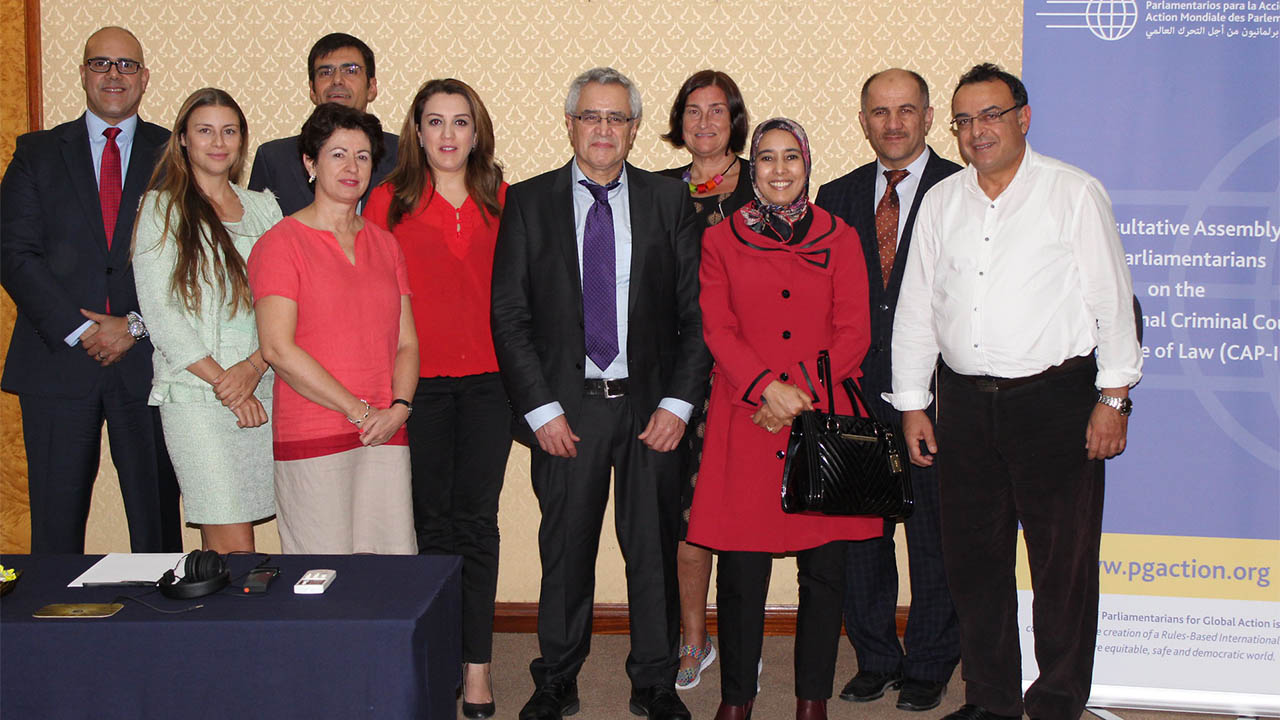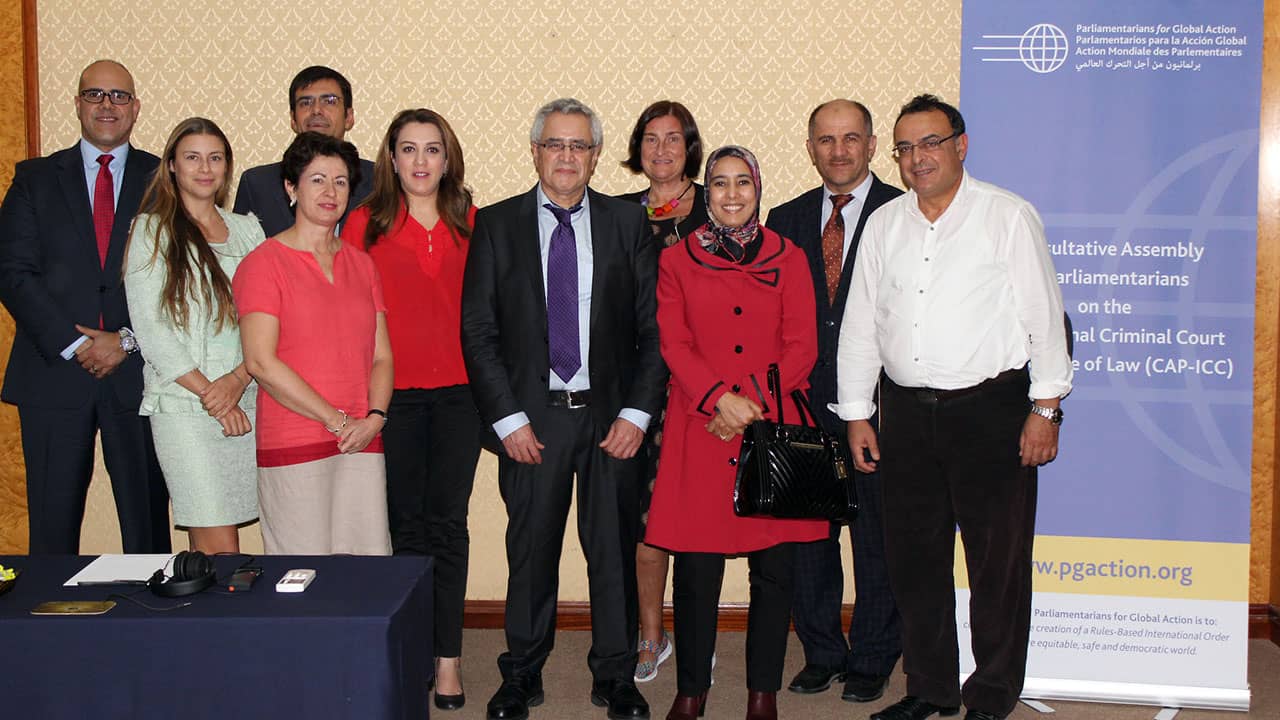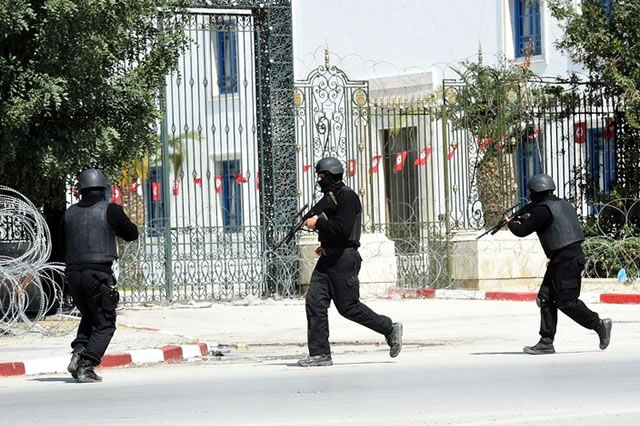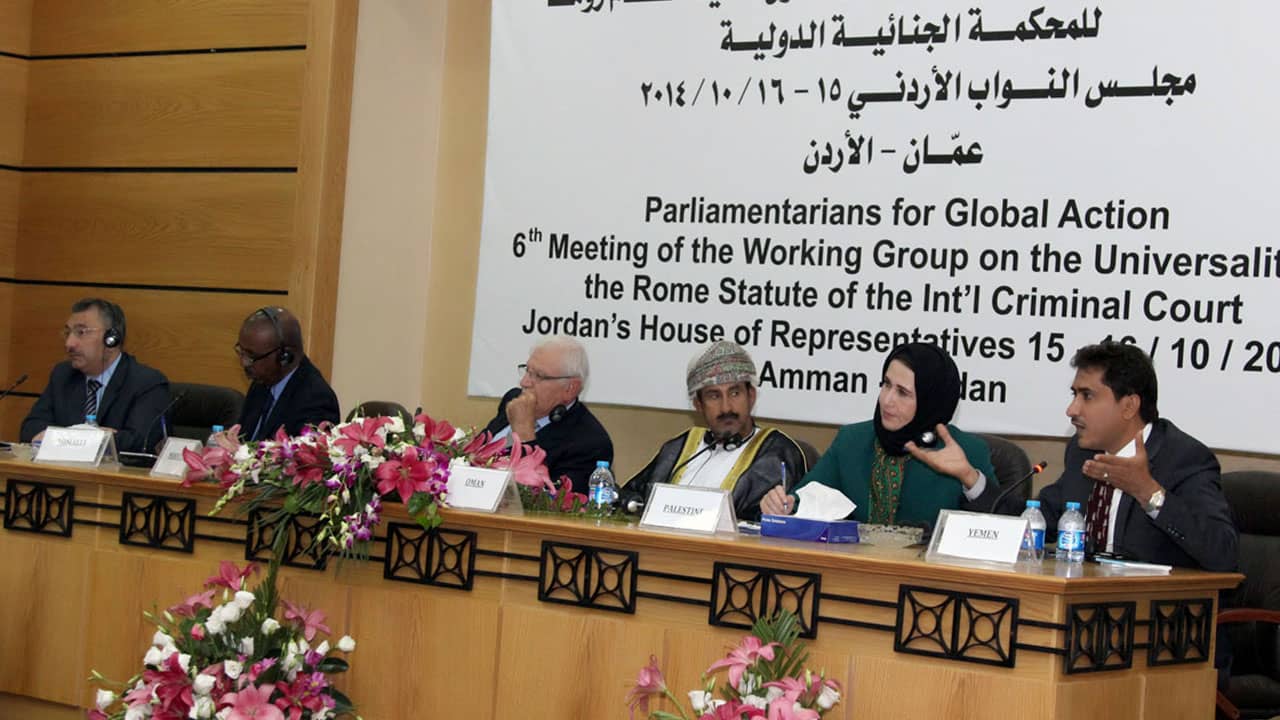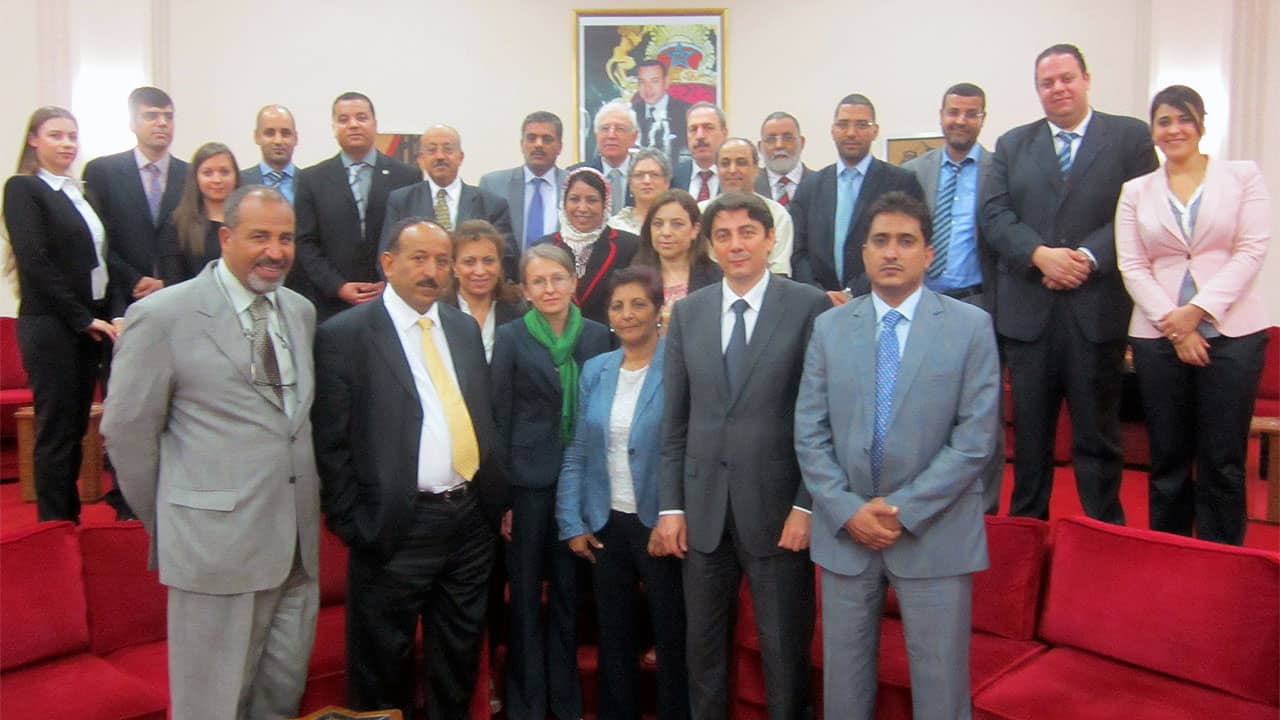Rome Statute
Tunisia deposited its instrument of accession to the Rome Statute of the International Criminal Court (ICC) on 24 June 2011, thereby becoming the first State Party from the North Africa region as well as the 116th State Party in the ICC system.
Kampala Amendments
Tunisia has not signed the Kampala Amendments of 2010 and did not attend the review conference.
While the process is in its early stages, there is concrete progress.
Status on the domestic implementation of the rome statute
After 5th Meeting of PGA’s Working Group on the Universality of the Rome Statute of the ICC in the Middle East and North Africa, in Rabat in May 2012, Tunisian parliamentarians asked for technical and political assistance to proceed with the drafting of Rome Statute legislation. Although no drafts have been fully developed yet, PGA has engaged with members from the Constitutional Assembly to work towards the preparation of such legislation.
Agreement on privileges and immunities of the court (apic)
Tunisia adhered to the APIC on 29 June 2011, a few days after having ratified the Rome Statute.
additional agreements
Tunisia signed a Bilateral Immunity Agreement (BIA) regarding the surrender of persons to the ICC proposed to several states by the United States on 5 June 2003.
progress and action
In the occasion of the 67th UN General Assembly Thematic Debate on International Criminal Justice and the Role of International Criminal Justice in Reconciliation, Tunisia affirmed support for the ICC and called for it to be given necessary resources. Stated that the UNSC had to avoid double standards and proposed an International Constitution Court modelled on the current ICC, in which national laws and constitutions may be challenged when in conflict with international law.
Human Rights Council Universal Periodic Review:
Tunisia has been reviewed in the 13th session of the UPR in 2012 (second cycle) and received recommendations by Costa Rica, Slovakia and Hungary to implement the Rome Statute, bringing its national legislation in accordance with all the obligations under the Rome Statute, including the definition of crimes and general principles, and to adopt provisions that will enable the cooperation with the International Criminal Court. Tunisia accepted these recommendations.

